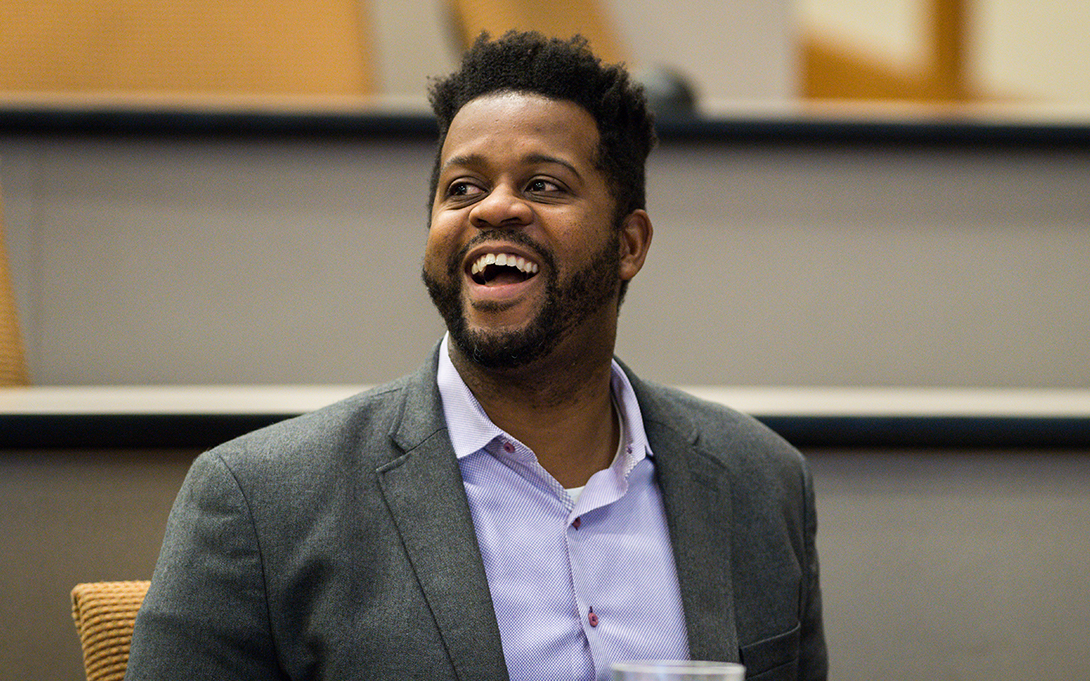
The field of Public Interest Technology is growing — putting technology to the use of social justice, the common good, and the public interest.
Ford School professor Robert Hampshire has just received his second grant from the Public Interest Technology University Network (PIT-UN), to expand upon his efforts to reach more historically underrepresented communities and strengthen career pathways into PIT.
“Now more than ever, is it important to include voices and representation from communities in which are typically most negatively affected by new technologies. In looking at the intersection of technology and policy, both fields fall short of representing the U.S. population,” he says.
Also on the project team are program manager Jessica Takata (MPP’ 22) who is also at the School of Information; Raymar Hampshire, co-founder of Generation Titans, which develops market solutions for startups of color to access the early-stage funding; and Tayo Fabusuyi, research scientist at the U-M Transportation Research Institute.
Hampshire led a class on PIT in the Winter 2020 term and again for the 2020 Public Policy and International Affairs (PPIA) Junior Summer Institute, and wants to introduce the program to other PPIA institutions to reach historically underrepresented communities at those universities. Hampshire will teach an experiential learning course, on various aspects of Urban Systems/Smart Cities, for students at U-M and social entrepreneurs of color working in the field nationally.
As well, he seeks to create a PIT-UN Knowledge Network learning platform (PIT-UN KN) to create a general PIT network resource to foster collaboration and incentivize information-sharing among network members.
“The Knowledge Network can support and encourage new ideas, as PIT practitioners learn about each others’ projects and build upon them. There isn’t a central resource out there yet and we think this can make a difference,” says Hampshire.
The PIT-UN KN will highlight experiential learning projects of the students, organizations, and faculty across the PIT-UN, and disseminate insights widely. In the winter 2020 semester, there were approximately 69 PIT experiential learning opportunities with 748 students, serving 132 clients around the country within the PIT-UN schools. These experiences connect students to public interest organizations in a direct way on mission driven projects. However, these efforts can be duplicative and provide conflicting recommendations. The platform also aims to create a marketplace to connect students with employers, organizations, faculty members, and other students working on similar projects. “To move PIT forward, we must learn from our collective experiences by connecting the dots between these disparate activities,” Hampshire says.
PIT-UN is a partnership of colleges and universities convened by New America, the Ford Foundation, and the Hewlett Foundation. The network is dedicated to building the nascent field of public interest technology through curriculum development, faculty research opportunities, and experiential learning programs, in order to inspire a new generation of civic-minded technologists and policy leaders.
More news from the Ford School